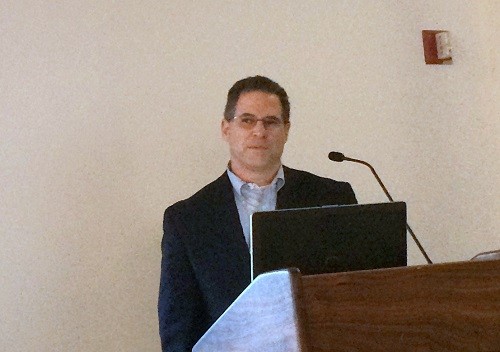NJ Startup Accreditrust Involved in W3C Accreditation Movement

New Jersey startup Accreditrust (Warren) is contributing to a worldwide standard on credentialing, following the procedures that may lead to an eventual endorsement by the World Wide Web Consortium (W3C), founder and CEO Eric Korb told NJTechWeekly.com.
The startup is working with some of the major stakeholders in credentialing in the U.S. and internationally.
Earlier this month, Accreditrust representatives spoke on the “Privacy Paradox” in Istanbul at a meeting of the Internet Governance Forum, the United Nation’s technology arm. In October, Accreditrust will participate in similar discussions with the Technical Plenary and Advisory Committee (TPAC) of the W3C. Accreditrust is also a regular participant in the Credentials Community Group and the Badge Alliance.
Korb noted that some of his advisers had warned against putting the company’s software out there as the foundation for a credentialing standard, but he believes that it would be better to establish his software as a standard way to exchange this kind of information than to hold onto it as a proprietary solution.
“If we hold it as proprietary, adoption will be slow,” he said. Korb noted that it will take another two or three years for the credentialing standard he is working on to be approved. However, “what we are doing isn’t an app that is going to disappear tomorrow. This is something that is long-term and solves a big problem worldwide.”
The big problem that Accreditrust wants to solve is one that plagues many online sites: How can anyone know if people are who they say they are?
Korb is starting to address this problem by focusing on one piece of it: how can companies know if potential employees are as qualified as they say they are, if they actually have the licenses, certificates, or diplomas they will need for their jobs?
Korb pointed out that, when people upload résumés or list their qualifications on LinkedIn or other sites, there is no way to verify that they really have the credentials they claim. This can have all sorts of bad consequences. A real world example is Scott Thompson, president of Yahoo, who said he had a computer science degree when he did not. When he was found out, Yahoo’s stock plummeted and its board resigned.
Accreditrust’s solution was to create software that enables universities, testing companies, and other licensing organizations to issue online credentials that are secure and trusted. To this end, the startup has been working with testing organizations, colleges, and technology groups.
Accreditrust makes those credentials machine-readable, so that hiring managers can access them through human resource (HR) software packages like PeopleSoft, and know that the credentials are valid. Accreditrust is working on a secure system that is tamper proof and will not allow credentials to be fraudulently created.
Korb says that the software problem the company is solving is a big one, providing a standard format for the representation of a credential so that all HR hiring systems can talk with the credential issuer’s system and validate the credential.
Accreditrust’s product is TrueCred, an enterprise-grade framework for verifying digital credentials linked to a web identity.
TrueCred APIs connect corporations, institutions, organizations, and governments who issue, exchange and verify millions of credentials every year.
Developers of computer based instructional delivery, testing, human capital management and professional networking applications use TrueCred APIs for processing digital credentials with authority and trust.

